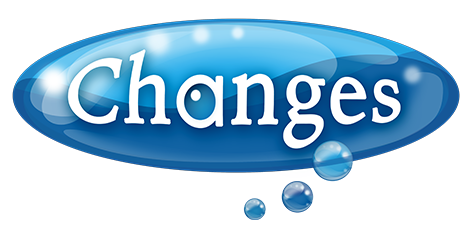What is Recovery?
To discover more on ‘What is Recovery?’ we have put together the following useful information to help you better understand what recovery is not, Changes definition of recovery plus useful quotes and definitions on recovery

What recovery is not:
Finding a definite cure for your condition
Returning to a previous state
Always functioning without support.
Changes definition of recovery:
For Changes recovery is a process, an attitude, a firm belief, that, through use and development of personal resources, you can overcome the symptoms of mental distress.
Thus, embracing ‘recovery’ promotes independence, personal autonomy and development, raises self-esteem, confidence and personal aspirations, enabling you to lead a more fulfilling and purposeful life.
In short, recovery is learning to live with, rather than suffer from, mental distress.
Other definitions / quotes regarding recovery…
Having some hope is crucial to recovery; none of us would strive if we believed it a futile effort. I believe that if we confront our illnesses with courage and struggle with our symptoms persistently, we can overcome our handicaps to live independently, learn skills, and contribute to society, the society that has traditionally abandoned us. Leete, E. (1989)
Recovery is a process, a way of life, an attitude, and a way of approaching the day’s challenges. It is not a perfectly linear process. At times our course is erratic and we falter, slide back, regroup and start again . . . .The need is to meet the challenge of the disability and to re-establish a new and valued sense of integrity and purpose within and beyond the limits of the disability; the aspiration is to live, work, and love in a community in which one makes a significant contribution. Deegan, P. E. (1988)
A person with mental illness can recover even though the illness is not ‘cured’… [Recovery] is a way of living a satisfying, hopeful, and contributing life even with the limitations caused by illness. Recovery involves the development of new meaning and purpose in one’s life as one grows beyond the catastrophic effects of mental illness. Anthony, W. A. (1993)
Recovery has been described in many different ways as a process, an outlook, a vision, and a guiding principle. The common factor among these descriptions is a key shift of emphasis: instead of focusing on symptomatology and relief from symptoms, a recovery approach aims to support an individual in that person’s own personal development, building self-esteem, identity and finding a meaningful role in society. Recovery does not necessarily mean restoration of full functioning without support, including medication; it does mean developing supports and coping mechanisms that build on the strengths and resources of each individual, enabling the person to deal actively with mental health experiences rather than being given “supports” by mental health services in a passive model of rehabilitation.
“Recovery requires the right atmosphere or organizational climate in your mental health organization one that is sensitive to consumers, and values independence of the individual. It allows consumers to risk, to fail. It holds that every consumer has a right to the same pleasures, passions, and pursuits of happiness that we have. It looks at potential, not deficits”. (Weaver, 1998)
Recovery is an ongoing dynamic interactional process that occurs between a person’s strengths, vulnerabilities, resources and the environment. It involves a personal journey of actively self-managing psychiatric disorder while reclaiming, gaining and maintaining a positive sense of self, roles and life beyond the mental health system, in spite of the challenge of psychiatric disability. Recovery involves learning to approach each day’s challenges, to overcome disabilities, to live independently and to contribute to society. Recovery is supported by a foundation based on hope, belief, personal power, respect, connections, and self-determination. Onken, S. J., Dumont, J. M., Ridgway, P., Dornan, D. H., & Ralph, R. O. (2002)
What is: Depression | Recovery | Bipolar Disorder | Anxiety | Schizophrenia